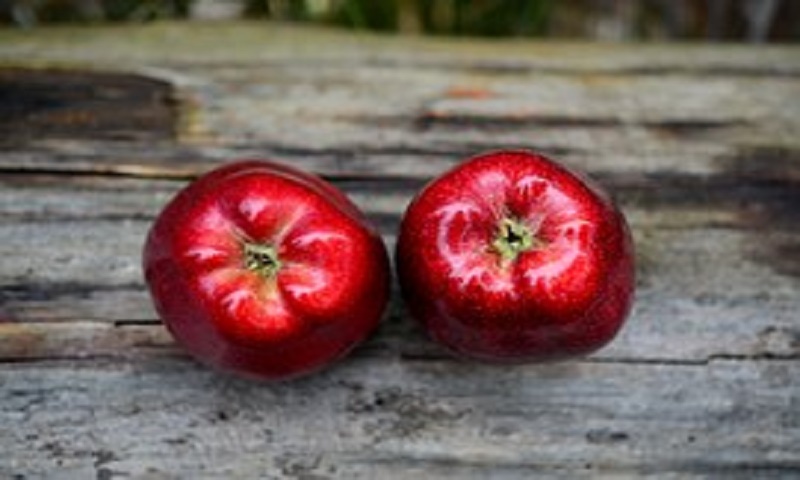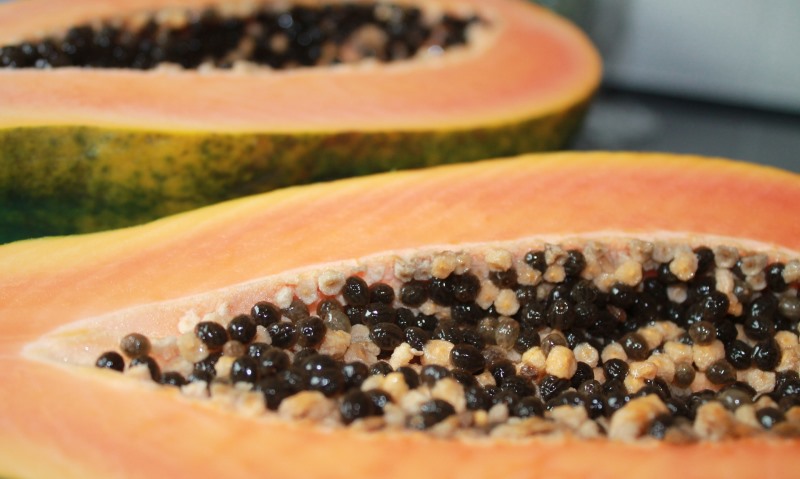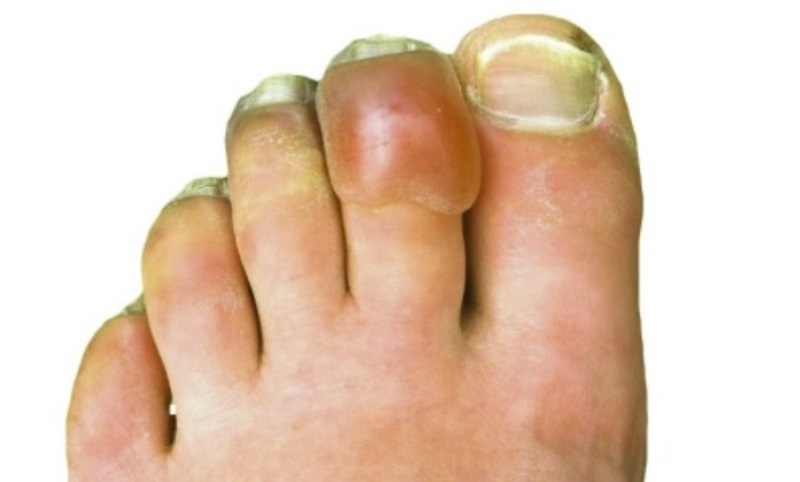They say an apple a day keeps the doctor away. But it sure seems like that a lot of fruits can help keep a lot of diseases and ailments, and consequently the doctor at bay! Except of course, if you are living with one! 😉 We have compiled a whole range of super fruits that offer multiple health benefits that are too good to be true. So, for those gym rats and dieting freaks or even crazy foodies (like myself), this list is all about reaping those health benefits by ditching that $%#@^ green smoothie and embracing a rather ‘juicy’ and delightful route to healthy happiness.
Suggested read: Superb benefits of chamomile essential oil for your skin, hair, and health
Check out the health benefits of these super fruits here:
1. Apple

Image source: Pixabay, under Creative Commons License
Apples are alkaline, eliminative an anti-scorbutic fruits. Regular intake of apples ensures overall health, especially that of skin, bones and teeth. Though the iron content of the apple is not high, it has a property that helps the body absorb the iron from other foods. Apples contain vitamin A, which keeps the eyes in good condition, and prevents night blindness. The vitamin that is so important in maintaining nerve health, vitamin B, is also found in apples. Steamed apples, being rich in pectin, are useful in diarrhoea. Apple juice is good for the gall bladder, and is known for its cleansing and healing effects on internal inflammation. Apples, because of their high fibre content, can lower blood cholesterol, aid liver function, rid the body of toxins and lessen the effect of X-rays. Eating two large apples a day can reduce cholesterol levels up to 16 per cent.
2. Avocado

Image source: Pixabay, under Creative Commons License
Avocados are packed with nutrients. Rich in vitamin A, vitamin E and potassium, they are useful sources of vitamin B6 and mono-unsaturated fat. High in glutathione, an antioxidant that helps to neutralize fat in other foods, they help in lowering the total dietary cholesterol.
3. Berries
All kinds of berries are perhaps the healthiest fruits you can eat. All berries have cholesterol-busting properties and are a good source of potassium as well. In addition, they contain the soluble fibre pectin, which helps to eliminate cholesterol, and protects against environmental toxins. Blackberries are rich in vitamin C and are an excellent source of vitamin E, which is beneficial for the heart and circulatory problems. Blueberries have an antioxidant pterostilbene, which reduces LDL and triglycerides by stimulating the protein receptors by the liver cells. Raspberries have phytochemicals which inhibit cholesterol production. Strawberries contain modest amounts of iron as well.
4. Banana

Image source: Pixabay, under Creative Commons License
Banana feeds the natural acidophilus bacteria of the bowel, and its high potassium content benefits the muscular system. The ripe fruit is a mild laxative. The unripe fruit is very good for all sorts of stomach and liver troubles, including gastric ulcers. Banana contains B vitamins, calcium and phosphorus and a great deal of fibre. Its soluble fibre makes it good for lowering raised cholesterol levels. The high energy content of banana makes it a very advantageous and filling food for convalescent and weaning babies. However, it is not very good for diabetics. An interesting thing about bananas is that they’re good for indigestion, for constipation as well as diarrhoea and dysentery.
5. Cherries
The cherry is high in iron, and is an excellent laxative as well as a wonderful blood builder. This fruit, which has a high alkaline content, also helps get rid of toxic waste, and has a wonderful effect on the glandular system. It is a gallbladder and liver cleanser because of its high iron content.
Suggested read: 18 intoxicating benefits of red wine for your skin, hair, and health
6. Citrus fruits
Pectin, found in the rind and core of all citrus fruits, reduces the blood cholesterol dramatically. Compounds, called polymethoxylated flavones (PMFs), tangeretin and nobiletin, found in the peels of tangerines and oranges have the most potent cholesterol-lowering effect. Grapefruit is high in vitamin C, potassium, and several carotenoids including beta-carotene. The white pith contains pectin and bioflavonoids which makes grapefruit the best antioxidant citrus fruit. Apart from this, the folic acid in citrus foods also makes them protect the heart from heart disease. The easiest way to use the citrus benefits is to drink a glass of grapefruit juice for breakfast, and use lime in salads generously.
7. Grapes
Grapes are rich in anthocyanins, flavones, geraniol, linalol, nerol and tannis. Experts believe these compounds to have antioxidant activity. In addition, red grapes contain resveratrol, which is believed to help reduce cholesterol and protect the heart. Grapes also contain some potassium and are also beneficial for cleansing and detoxifying the system. Eating grapes as mid-morning snack is recommended but care should be taken not to overeat as in some people grapes may cause diarrhoea. Diabetics should avoid them as grapes are very high in calories.
8. Guava
Guava is the richest source of vitamin C after Amla. Guavas are also useful sources of calcium, nicotinic acid, phosphorous, and soluble fibre. They are very good for the immune system and are beneficial in reducing cholesterol and protecting the heart. The high fibre content of guava, apart from having good laxative qualities, also helps in the control of blood sugar. Because of its high vitamin C content, guava is also good for bleeding gums and joint pains. It also gives the skin a healthy glow.
9. Papaya

Image source: Pixabay, under Creative Commons License
Papaya contains vitamins A, B, C. The chymopapain contained in papaya softens tight muscles and is the reason it is the main ingredient in meat tenderizers. Papaya has tonic, laxative, digestive and rejuvenative properties. Ripe fruit is very useful in digestive disorders and if taken regularly, it cures all sorts of stomach troubles. The unripe fruit is also prescribed in stomach troubles, jaundice, gastritis and liver disorder. Again, papaya is good both for constipation and diarrhoea.
10. Peach
Peaches are wonderful in alkalinizing the blood stream and stimulating the digestive juices. The peach has a high sugar and water content and hence has a very good laxative effect. They can be used to regulate the bowel and build the blood. Peaches are an excellent food for elderly people, because the body assimilated the fruit very easily. Since they are easy to digest, very ripe peaches can be eaten in cases of ulcers of the stomach and inflammation of the bowel, and also in cases of colitis. Peaches are wonderful in helping to eliminate toxins from the body, and they are good to eat on a weight-loss programme.
11. Pineapple
Pineapple is high in fibre, vitamin C and potassium and a unique digestive enzyme called bromelain, which helps to digest proteins. In addition, pineapple contains other micronutrients which some experts believe help disperse blood clots for increased heart protection. Juice from unripe fruits acts as a strong purgative, useful in constipation. At the same time, juice of the unripe fruit also causes uterine contractions and should not be given to a pregnant woman. Juice of the ripe fruit cures gastric irritability in fever and is very helpful in jaundice. The fruit is also antihelminthic in nature, that is, it helps in getting rid of intestinal worms. Pineapple pieces eaten fresh with salt and pepper to get rid of indigestion.
Suggested read: The little-known benefits of the magical argan oil for your skin and hair
12. Pomegranate

Image source: Pixabay, under Creative Commons License
Pomegranates are proving to be one of the most powerful antioxidants available. A study showed that the cholesterol oxidation process- which creates atherosclerotic lesions that narrow arteries and result in heart disease- was slowed by as much as 40 percent when healthy subjects drank 2-3 ounces of pomegranate juice a day for two weeks. Further, the juice reduced the retention of LDL, the ‘bad’ cholesterol that after its oxidation aggregates and forms atherosclerotic lesions. It has also been found that the pomegranate juice slows down the damage caused by cholesterol, reduces blood pressure and more than doubles the levels of antioxidants in the blood. Pomegranate is also rich in tannin, which acts as an astringent in the intestines and precipitates food proteins. Its juice is one of the best for bladder disorder and has a slight purgative effect. For elderly people, it is a wonderful kidney and bladder tonic. Pomegranate in any form should be consumed daily- fruit juice, or powdered seeds as chutney or salad dressing.
Have a fruity, healthy life! 
Featured image source: Pixabay, under Creative Commons License













